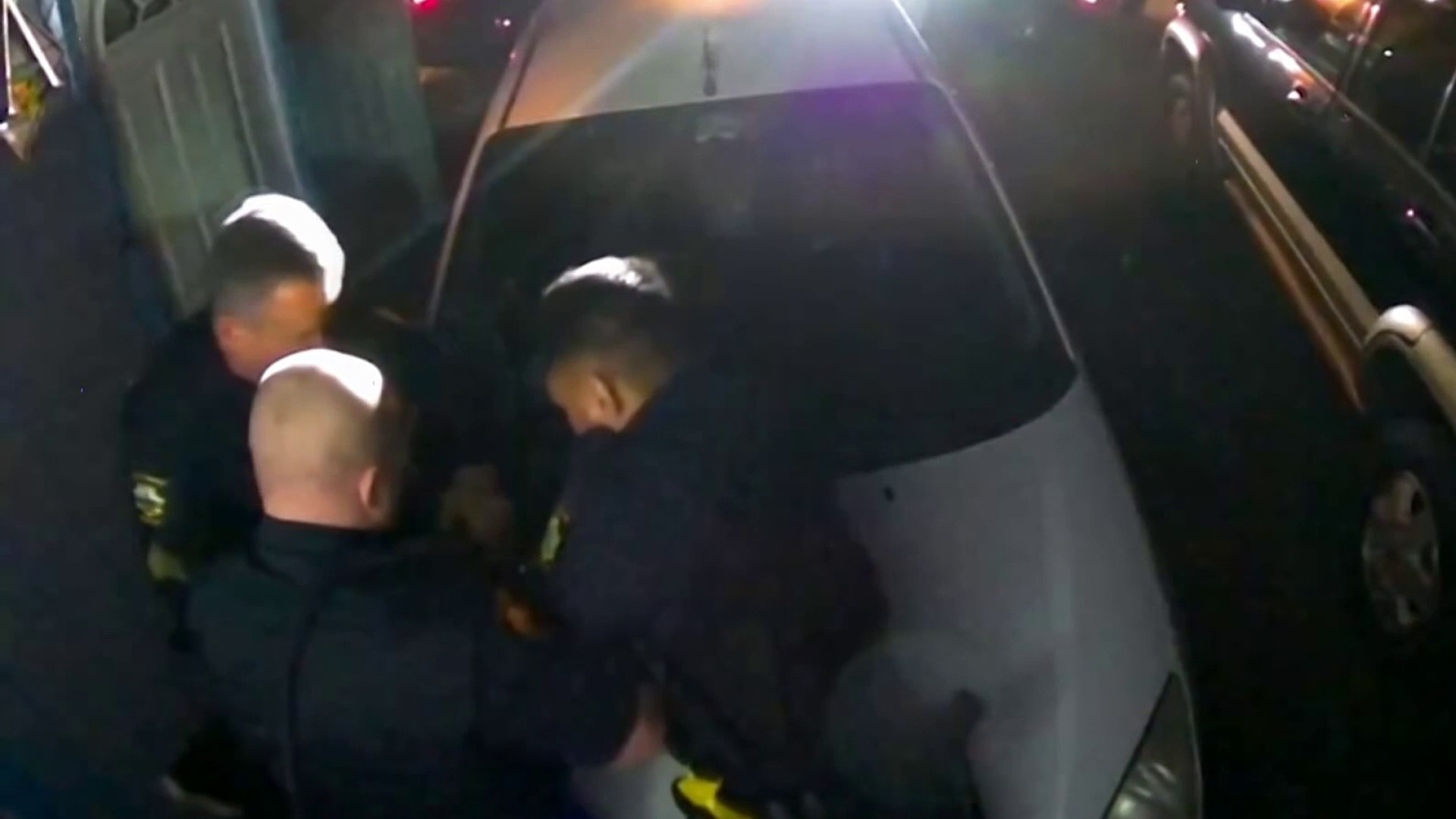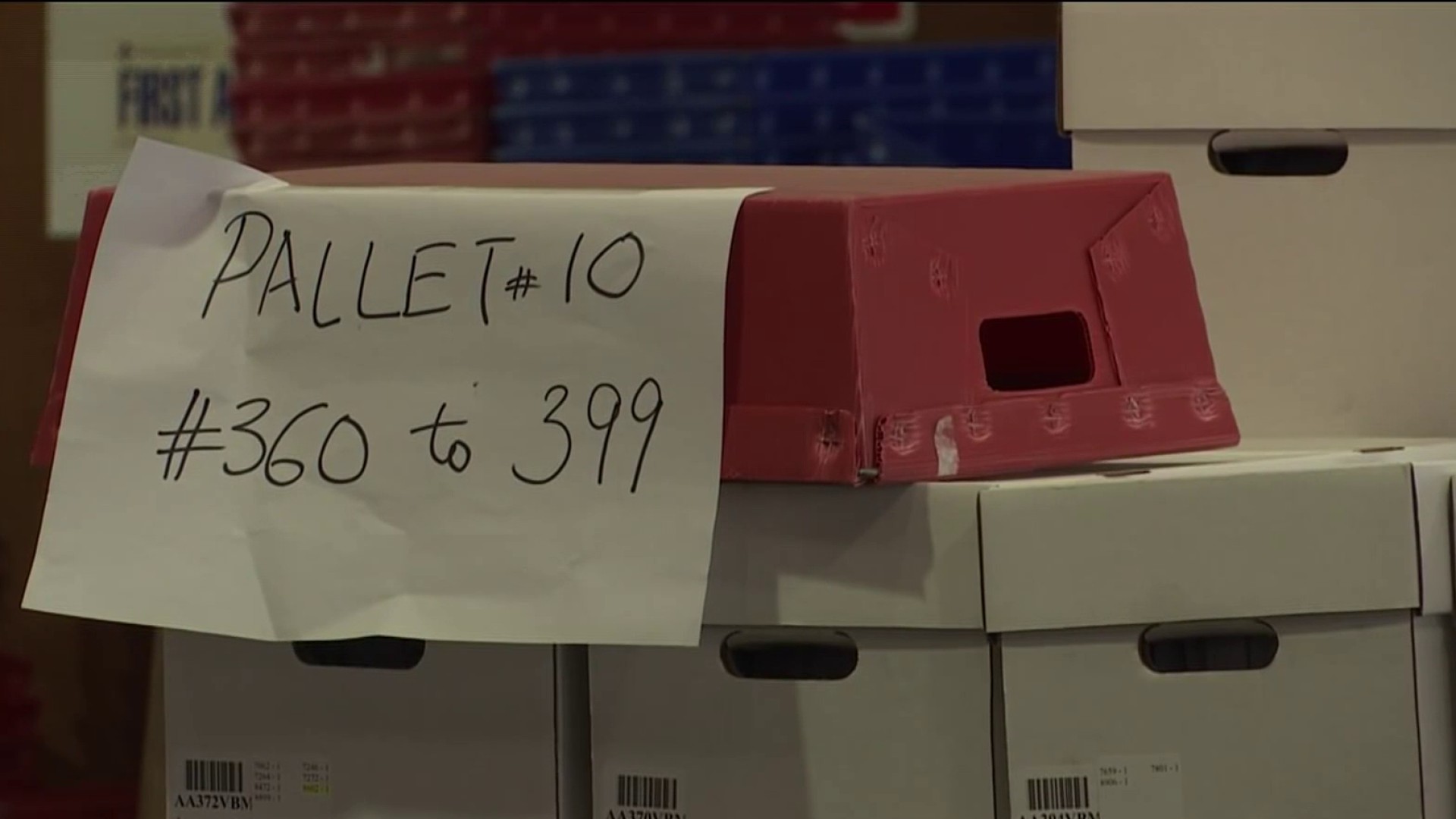Among the many decisions San Mateo County voters will make on Election Day are one countywide and 14 city-specific ballot measures mandating everything from new taxes on your property bills to rent control measures in two cities on the Peninsula.
Learn a bit about each of them here:
SAN MATEO COUNTY SALES TAX: For San Mateo County voters, Measure K will ask you to decide on whether to extend the current half-cent sales tax rate.
The county states that the current tax rate contributes $85 million annually to the general budget and that it will allocate these funds to “retaining and improving critical facilities and services” such as affordable homes, public transit, combating human trafficking, addressing sea level rise, safety, educational programs, parks and low-income healthcare.
The initial tax increase was decided on in November of 2012, bringing San Mateo County to a similar tax rate as Alameda and Los Angeles counties.
At the time, it brought San Mateo County's sales tax to one of the highest in the state.
The current county tax rate is set to expire in 2023 and would continue until that year in the event of a “no” vote. In the event of a "yes" vote, the additional half-cent increase would continue until 2042.
Local
SAN MATEO RENT CONTROL: For voters in San Mateo, Measure Q asks voters to decide on whether to limit the annual rent increase to between one percent and four percent, allowing compounded increases not to exceed eight percent in a single year.
Rent control measures have been one of the most highly debated local ballot measures in the county.
It is estimated that the measure would cost approximately $2 to 2.5 million per year for the city to administer and would be paid by a rental housing fee created by the city to charge landlords of some rental properties.
SAN MATEO FIRE SERVICES CONTRACTING AMENDMENT: For voters in San Mateo, Measure L asks voters to decide on whether to eliminate the city requirement to own a fire department, allowing it to contract with other agencies for those services.
Consolidation of fire and other services has been in the news frequently within San Mateo County cities.
An editorial in 2011 outlined the rare frequency in which peninsula cities were merging services in order to save costs.
However, it is not the only Bay Area county to do so.
Following budget restraints, Contra Costa also shut down four fire stations in 2012.
REDWOOD CITY SCHOOL DISTRICT PARCEL TAX: For Redwood City School District residents, Measure U asks voters to decide on whether to increase the parcel tax that charges $65 for each property unit to $85.
The county states that this tax would exclude seniors and contribute $1.4 million annually to local schools.
The current tax rate is set to expire in one year and would either increase in 2017 in the event of a “yes” vote or discontinue in the event of a “no” vote.
BAYSHORE ELEMENTARY SCHOOL DISTRICT BONDS: For Bayshore Elementary School District residents, Measure S asks voters to decide on issuing up to $7 million in bonds to pay for finishing a new school, facility improvements and ADA accommodations.
The district estimates taxes needed for this bond are approximately $30 per $100,000 of assessed property value, so it estimates a $700,000 property holder would pay $210.00 annually if passed.
BURLINGAME SCHOOL DISTRICT BOND: For voters in Burlingame’s School District, Measure M asks voters to decide on issuing up to $56 million in bonds to pay for facility improvements and repairs, ADA accommodations and safety measures.
The district estimates taxes needed for this bond is approximately $22 per $100,000 of assessed property value, so it estimates a $700,000 property holder would pay $154 annually if passed.
PARCEL TAX FOR JEFFERSON ELEMENTARY SCHOOL DISTRICT PARCEL: For voters in Jefferson Elementary School District, serving Daly City, Colma, Broadmoor and Pacifica, Measure T asks voters to decide on an annual parcel tax that would charge $68 for each property unit in the district.
The county states that this would exclude seniors and go to improve ‘math, science, technology, reading and writing’ as well as securing high quality teachers in the district.
PACIFICA LIBRARY BOND: For voters in Pacifica, Measure N asks voters to decide on issuing up to $33.5 million in bonds to pay for a new library.
Estimates on the cost per household, are approximately $17.84 per $100,000 of assessed property value next year, so a $700,000 property holder would pay roughly $124.88 annually if passed.
BURLINGAME RENT CONTROL: For voters in Burlingame, Measure R asks voters to decide on repealing a previously adopted measure prohibiting regulation of rental prices and enacting a maximum increase of a unit’s rent price to 4 percent as well as creating a commission to regulate fees required by the measure.
It would also require just cause eviction restrictions on some rental residential units.
Advocates and critics of rent control measures in Burlingame and San Mateo have been rallying support for months with the hope of swaying the results in their favor.
PACIFICA ROCKAWAY QUARRY RESIDENTIAL DEVELOPMENT: For voters in Pacifica, Measure W asks voters to decide on whether to allow a residential development of up to 206 multi-family units at the Rockaway Quarry.
The measure states that 75 percent of the Quarry land be “permanently protected open space” and that public trails must provide public beach access from Rockaway Beach to Mori Point.
EAST PALO ALTO RENT CONTROL REVISIONS: For voters in East Palo Alto, Measure J asks voters to decide on whether to change language in a previous ordinance and state that the maximum rent increase be restricted to 10 percent per year.
EAST PALO ALTO SALES TAX: For those in East Palo Alto, Measure P asks voters to decide on a one-half cent tax on retail purchases.
The county states that the $1.8 million generated annually would go to “police, streets, parks, infrastructure - and recreation services including youth and senior programs.”
EAST PALO ALTO LANDLORD TAX: For those in East Palo Alto, Measure O asks voters to decide on whether to charge landlords (with exemptions on some properties) owning five or more residential rental units a 1.5 percent annual tax.
The county states that the $600,000 generated annually from this tax would go to affordable housing, displacement and homelessness protection services.
BELMONT SALES TAX: For voters in Belmont, Measure I asks voters to decide on whether to increase the current tax rate by 0.5 percent. The city currently receives 1 percent of the 9 percent retail sales in Belmont and would continue to do so in the event of a “no” vote.
The county states that the $1.3 million generated annually for 30 years would go to “fixing potholes, repairing 69 miles of city streets, maintaining 911 emergency response, repairing deteriorating storm drains, reducing traffic congestion and improving public safety on neighborhood streets.”
PARCEL TAX FOR DALY CITY: For voters in Daly City, Measure V asks voters to decide on whether to adopt a parcel tax that would charge $162 for each property unit for the next five years.
Daly City residents would pay the extra amount on their annual property tax bill.
The county states that the $3.8 million annual revenue it would generate would go to police and fire personnel and related operational costs.
Don’t forget to vote. San Mateo County residents can check their voter information here or call 650-312-5222.



